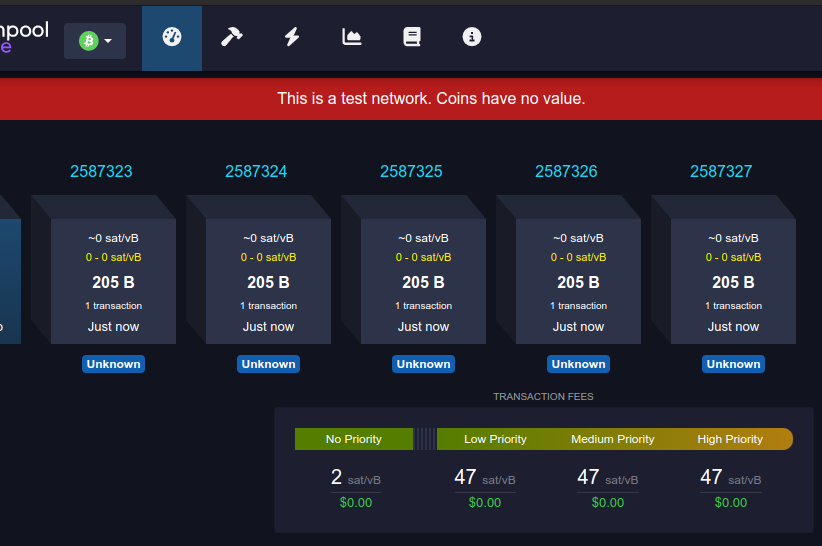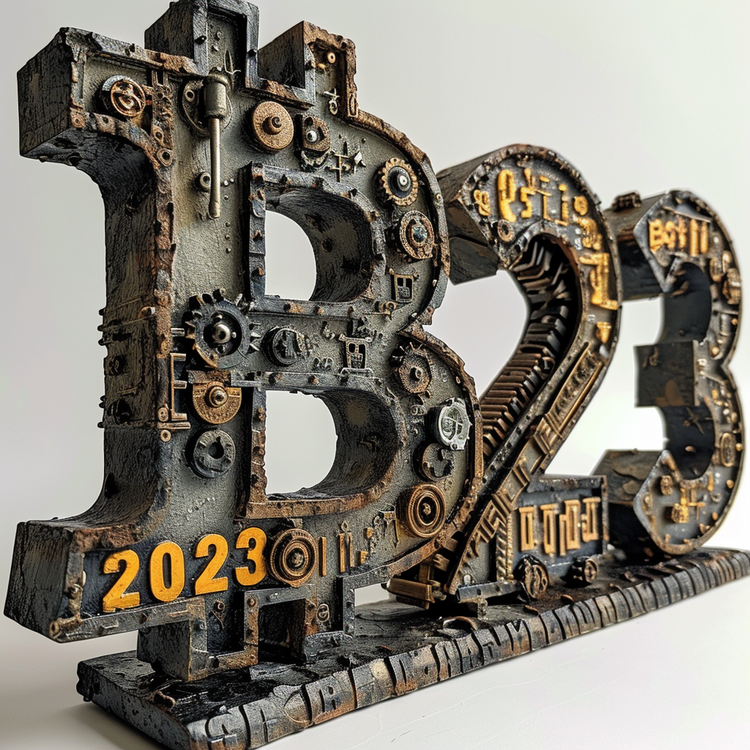Satoshi Roundtable VIII Recap

As usual for this unconference I chose to mostly attend sessions on topics in which I'm not an expert in order to maximize my learning opportunities. The following are the insights I gained from the discussions in which I participated.
Bitcoin Development Funding
It's estimated that about $20M per year is donated to fund development of free and open source Bitcoin software. In general, FOSS funding has a complex set of issues and it's something of a "tragedy of the commons" problem.

Someone asked if issuing bonds would make sense, but bonds are investment vehicles that expect a return on the investment from future revenue. As such, it was agreed that funding Bitcoin development should be a donation / charitable model.
Another alternative could be an endowment that earns its own money and uses the profits to sustainably fund grants? Or a business that leverages Canada's SR&ED tax incentive program - essentially using government grants to fund development.
There will always be some contention around who funds developers because of fear that pressure will be exerted to steer development in a direction that benefits the funders at the expense of others in the ecosystem.
To reduce centralization threats it's preferable for many profitable companies in the space to hire FOSS devs with "no strings attached" contracts regarding what they choose to work upon. Though from a company's perspective, it's always difficult to justify the cost of hiring FOSS devs when the benefits are indirect and unquantifiable.
One project worth emulating might be FreeBSD, which has a similar ethos of "most slow and don't break things." It has a foundation that exists solely to fund 3 maintainers.
Would it make sense to post bounties for implementing BIPs and other features?
- Unfortunately bounties tend to attract lower quality coders
- The real bottleneck is quality code review, not code writing
- Bitcoin ACKs is a project that lets you pledge bounties on Bitcoin Core pull requests though I'm not sure how the bounties get paid out; I think it's more of a signaling mechanism.
At time of writing it seems that most FOSS Bitcoin devs are funded either by charitable organizations or by exchanges (which tend to be the most profitable businesses in the industry.) Perhaps we could try to get some large scale Bitcoin miners to follow suit?
Also, it's generally agreed that the bottleneck is not money, but available developer talent. From a talent standpoint, Bitcoin is competing against pretty much every industry now since software continues to eat the world.
One concerning thing we're seeing is more folks pushing for protocol ossification. There's a huge debate around the merits of sticking with the protocol we know versus taking the risk of adding new functionality that could add value but could also introduce a vulnerability. One compromise here would be to put more focus on funding development of second layer tech since it tends to not require changes to consensus.
There are also issues around the culture of development. Newbies can be afraid of making proposals to the development list due to the adversarial nature with which ideas tend to get picked apart. Acting as a solo dev can also be overwhelming; perhaps more group development should be encouraged. On the flip side, Bitcoiners tend to have kneejerk reactions to folks forming groups...
There's also a longevity issue around dev burnout. We don't want talented developers to spend years championing their work, only to give up contributing if their proposal isn't accepted.
If you're interested in helping to fund Bitcoin development, check out the resources I have listed here.
Building a Crypto First Family Office
The primary point of starting a family office is to outsource the administration of parts of your life in order to scale up your lifestyle.
A single family office is expensive to run; in the range of $300K - $1M per year. Multi family offices, on the other hand, can share resources. What do family offices focus upon?
- Wealth Management
- Legal Advice
- Estate Planning
- Security
- Concierge Services
Managing capital is stressful and can cause analysis paralysis; high net worth individuals can gain peace of mind by outsourcing finances to a professional... if they're trustworthy.
Tips on setting up a crypto family office:
- Have a vision for what your office aims to accomplish
- Hire employees who share your vision & values
- Bank setup can be a pain
- Folks have had better experience with First Republic Bank than with Silvergate & Signature Bank
- Some private banking services have a high minimum AUM ~$100M and of course that means in traditional assets
- Unfortunately there's no cookie cutter template for all of this yet
Be aware that crypto clients get scrutinized more than traditionally wealthy clients. However, the appetite of bankers to service crypto clients is increasing - they will go wherever the money is.
Word on the street is that Digital Currency Group is currently building a wealth management company for crypto folks called HQ but timeline for their doors opening is unclear.
Dubai - A Bitcoin Citadel?
Dubai is an odd beast with regard to the regulatory status of crypto assets. On one hand there are no capital gains taxes and no requirements to declare what assets you own. On the other hand, it's illegal to accept any cryptocurrency for payments.
Word on the street is gambling may be legalized soon; we heard of hotels with entire floors of empty casinos just waiting to be opened.
If your crypto business has the appropriate financial licenses then you should be safe. However, the regulations are not always uniformly enforced.
Dubai has a partnership with Crypto Valley in Switzerland. As a crypto business, you can't open a bank account in Dubai, but you are allowed to open a Swiss account that you use in Dubai.
Dubai has an obscene level of internet surveillance on par with China. It can cause issues with VPNs and secure messaging apps. The UAE does not have any sense of freedom of speech - it's a very bad idea to criticize the government. You should assume that all of your data is monitored, though from a practical standpoint this surveillance is mostly used to target local dissidents rather than loudmouthed foreigners.
If you're shopping globally for a prime citadel spot, I suspect you can find places with similar amenable taxation but also more freedoms.
El Salvador
Folks on the ground report that low level bureaucrats are enthusiastic about improving Bitcoin adoption, but the folks higher up in government will routinely block requests on a whim.
President Bukele has an advisory team of folks from Venezuela and it's not quite clear who they are / what they do / why they are there.
If you can manage to get through all the layers of bureaucracy and intelligence forces that protect the president then it's still likely that he will change his mind on something without any notice.
The poorer citizens of El Salvador tend to be more excited about Bitcoin while the wealthier folks are more skeptical because they remember getting burnt by previous corrupt administrations.
Most Salvadorans don't know the difference between custodial and noncustodial wallets. In fact, few Salvadorans know much about Bitcoin at all due to how it has been rolled out without any educational programs. Now other private organizations are setting up programs on their own.
Chivo's daily active users hovers around 500,000 - about 10% of the population. Many of these users are arbitrage traders.
Rumor has it that delegations from El Salvador are visiting other Latin American countries to provide guidance on how to replicate their efforts. Top contenders for Bitcoin adoption are Ecuador and Panama because they operate on the US Dollar similar to El Salvador and are thus at the mercy of the Federal Reserve's monetary policy. Also, countries that are well known for selling passports are similarly ripe for adoption.
Government Involvement in Wallets / Exchanges
As we all know, El Salvador rushed headlong into their Bitcoin rollout. They initially launch on top of Athena's (Bitcoin ATM) wallet but after having a ton of issues with it, have switched to using Alphapoint who rewrote the entire Chivo system from scratch.
Apparently the government of El Salvador is attempting to run their tech projects as if they're fast-moving startups, but they aren't really technical and don't understand the software development lifecycle. This is why they keep setting unrealistic goals. On a related note, the reason that Lightning Network is not the default option in Chivo is also because of some bureaucrat's decision rather than due to any technical consideration.
While there are many complaints about delayed payments from Chivo users, these tend not to be due to technical issues, but rather due to long backlogs in the AML review process.
As mentioned earlier, the government has placed almost no resources into actual Bitcoin education. Rather, they've opted for providing tech support on an as-needed basis and hoping users educate themselves as a result of incentives. Individuals are incentivized by the $30 airdrop while merchants are incentivized by being able to accept payments with 0 processing fees.
Bermuda, on the other hand, is taking a slightly different approach. They have no intention of making Bitcoin legal tender, but rather are pursing voluntary adoption of cryptocurrency and stablecoins by educating citizens about their benefits. Bermuda is a low tax jurisdiction and there are no specific taxes on income, capital gains, or other taxes on digital assets in Bermuda. The government itself is an early adopter, having accepted USDC for taxes and services since 2019.

It will be interesting to compare and contrast adoption in these countries over the coming years.
Free Private Cities
What is a free private city? It's a city that's incorporated inside of a nation with the understanding that the city will obey the nation's constitution but nothing else. Such a city will:
- Require citizens to sign a contract with the city
- Have its own taxation scheme
- Run its own public services
- Control its own borders
The goal is to change the relationship between citizen and state to be one of service provider rather than overlord. Such cities could even allow citizens to become shareholders.
What services will the city provide? Probably just basic security - it's expected that most other services will be privatized.
The concept is modeled after Singapore and Monaco. Some examples of free private cities are Prospera, Honduras and Mount Athos, Greece. Countries with weak economies may be more amenable to hosting free private cities.
You can learn more about this concept at freeprivatecities.com.
Cross Chain Self Custody Wallets
As always, there are trade-offs between security and convenience. What we often see with multi-asset wallets is they create a single point of failure by using the same keys across all your assets.
You can also run into UX nightmares with different networks that support the same address formats, such as LTC and BTC P2SH addresses. It can be very confusing for a user to figure out what went wrong and then take a lot of effort to recover the funds since different networks use different derivation paths to generate keys.
Another tricky issue is that signatures mean different things on different networks. Understanding the context of a transaction is important when you're interacting with smart contracts. Along the same vein, users can get a false sense of security when using a hardware key manager that is blindly signing data with no knowledge of the underlying smart contract. There's no shortage of scams happening these days that exploit this weakness.
A single malicious signature can rug *all* of your approved OpenSea NFTs. No need to sign an individual sell order for each one, as originally assumed.
— foobar (@0xfoobar) February 20, 2022
This is how today's hacker stole 10 Azukis, 8 mfers, and 3 mutant apes in a single transaction, with a single sig. pic.twitter.com/kJQgidthFM
It's also hard for users to know exactly what they have authorized any given smart contract to execute. Apparently the DeBank dashboard is a useful tool for seeing the allowances you have approved.
DAOs
DAOs have continued to gain adoption as there are more and more experiments in group coordination being conducted via DAO mechanisms.
One of the most underappreciated aspects of DAOs may be DAO-to-DAO collaboration. This can occur with far lower friction than the typical B2B partnership, because it tends to forgo all of the legal contract negotiation.
Also, DAOs can incentivize each other by participating in token swaps.
DAOs need not operate via purely democratic "token voting" systems - they can elect committees to delegate certain powers in order to be more agile than having all decisions go through the global governance process. And, in fact, we see a wide range of governance mechanisms being implemented across DAOs from fully democratic to rather autocratic.
While it's rarer, we have seen some businesses engaging in partnerships with DAOs and forgoing legal contracts by incorporating that risk into their decision making.
If you want a good DAO dashboard, check out deepdao.io.
Since DAOs are not legal entities, they don't pay taxes. Nor do they have an HR department. On the flip side, you're not going to get any traditional benefits while working for a DAO. Nor will you be able to get a work visa to live in a different country since no country will recognize a DAO as an employer.
It was generally agreed that the greatest challenge for DAOs in the long term is apathy. The average person doesn't want to spend time doing research to make decisions on the future of the DAO. Also, if people in positions of power in the DAO become apathetic, it can create a huge challenge to facilitate a smooth transition with offboarding them. As such, there are plenty of open questions around the sustainability and longevity of DAOs.
GameFi - Tokenization of Gaming
When gaming meets finance, beware the ponzification of games!
Many of the currently popular games are targeting emerging markets - they're "play to earn" or P2E for short.
One unique perspective you can take is from the fact that children can't open accounts at crypto exchanges, but they can engage in gaming economies - as such this can become the primary on-ramp for teens to get into crypto.
We are seeing some backlash from traditional gamers who think the incentives are ruining gaming culture or that gaming companies are putting profit ahead of playability. GameFi does seem to be suffering from a problem of "putting the cart before the horse" and often focusing on the tokenomics more than the actual quality of the game. You can't just slap a token onto a game - it needs to be an integrated part of the experience / challenges / reward.
Tokenization is well positioned to disrupt the esports industry because there are so many middlemen taking cuts from players.
Unfortunately, many gaming tokens are difficult if not impossible to trade. From a regulatory standpoint, game companies can't allow "cash out gaming" because it's considered a form of gambling. It can also be difficult for games to implement tokenomics in a way that won't be considered gambling. You have to be 100% sure that none of the rewards are acquired by gamers as a result of chance. Think about it - games use randomness all over the place to ensure that your experience isn't predictably boring. As such, it may be safer to implement rewards for competitive human vs human games or for "learn to earn" platforms.
There are also economic questions of value flow - are these games a bunch of rich western kids who are effectively paying folks in third world countries to grind away at P2E games? Won't this inevitably result in some of the same terrible conditions we saw in the World of Warcraft days where there were sweatshops full of "playborers" who farmed gold and leveled up characters?

Why not just integrate bitcoin into games like we've seen Zebedee do? It's a matter of control - game companies prefer to have maximum flexibility over the tokenomics of the ecosystem they're building. In short, GameFi is about more than just monetizing the playing of games.
Metaverse & Web3
Web 2.0: Log into services with username & password
Web 3.0: Log into services with your wallet
The pandemic caused a virtual reality boom as many folks who found themselves physically constrained via lockdowns used virtual reality to escape into new worlds. I myself, being a VR user since 2018, was delighted when we started having weekly Bitcoin VR meetups on the weekends during 2020. I even ended up speaking at several virtual reality conferences!

One way to think of the metaverse is as a next generation web site that offers an entirely new level of interactivity. With traditional web sites, you're only interacting with the company that runs the site. With virtual worlds you are also interacting with the other users of the "web site." Though there's a bit of a disconnect with the current state of metaverse adoption because these worlds tend to be walled gardens. As a result, interoperability and standards will be key for mainstream adoption because brands don't want to have to build the same user experience for a dozen different platforms.
Web 2.0: Users are monetized by the web site via ads / data mining / surveillance.
Web 3.0: Users capture value and are rewarded for their patronage.
There are a ton of scalability challenges both on the metaverse side and the web3 side. It's incredibly difficult to build virtual worlds that can handle thousands of simultaneous users because the complexity of handling all of their interactions goes up exponentially. Similarly, web3 scaling is likely going to necessitate second layer protocols since it doesn't make sense for every user interaction to be permanently stored on a global ledger.
Where will we see early adoption of this technology? Probably in MMORPGs - they are already building virtual worlds and just need to figure out how to architect and deploy crypto asset systems that have a smooth user experience and logical tokenomics.
Conclusion
As the ecosystem around crypto continues to grow, the diversity of attendees at this unconference does as well. It's overwhelming trying to keep up with all of the developments in this space, so I greatly appreciate being able to receive so many crash courses over the period of a few days.








